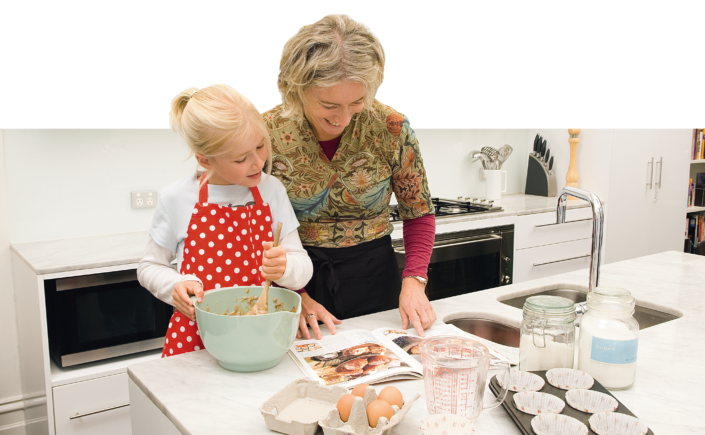Many parents are looking for ways to help ensure their children are school-ready. One way of doing this is by helping children to develop early literacy skills that will set them on the path towards learning to read.
The Australian Literacy Educators’ Association (ALEA) has developed the Little People’s Literacy Learning Modules to provide parents and carers with guidance on introducing early literacy to their children.
The modules developed by authors Anita Ayre and Professor Trevor Cairney started life as a book created for Anita’s first grandchild to assist his parents in engaging him in talk and text.
Anita and Trevor’s advice for parents covers reading to children, speaking, rhythm and gross motor development, including:
- Help your child clap the syllables in words, beginning with your child’s name, then familiar words. The slash is used to separate syllables, for example, Ja/son; Ste/pha/nie; Mum/my; Nan/na; Grand/dad; ba/by; toy/box; shop/ping/cen/tre; pen/ cil; man/da/rine; pi/an/o; as well as any words your child uses. Clapping the syllables in words helps to decode unknown words by breaking up the words into sections.
- Ask your child to close his or her eyes and listen to sounds in different environments. Discuss the sounds that your child hears, for example, at home, at the zoo, on the train, in the park or a walk through a natural environment. Can you hear a rhythm in the sounds, such as rhythm in a bird’s call? Allow your child to use an electronic device to record the different sounds in different environments. Store the recordings in a ‘sound library’ so your child can revisit the experience of different sorts of sounds.
- Look at a picture and encourage your child to tell you what the picture or story may be about. For example, look at the front cover and ask: ‘What do you think this story/book might be about?’. Looking into the book you can ask questions such as ‘What’s this?’, ‘What type of animal is that?’, ‘Is it a windy day?’ or ‘How can you tell?’.
- If you cook with your child, it can become a reading and learning activity. When following a written recipe, you and your child can try to read the instructions. Safety permitting and with your adult supervision, your child may be able to carry out some steps of the procedure. Some examples of conversation throughout the preparation process include: ‘Look at the picture of the eggs. How many eggs does it say to use?’, ‘Let’s read the first step.’, ‘What do we have to do next?’ and ‘What happened when we poured the flour into the egg mixture?’.
ALEA National President Beryl Exley said parents could play an important role in helping their children develop early literacy skills, with the ALEA Literacy Declaration stating:
“Parents and caregivers play a critical role in fostering children’s engagement in and enjoyment of a wide range of experiences that enhance literacy development. They need to understand that children benefit from rich oral language experiences and opportunities to interact with high quality literature representing diverse cultures, experiences and perspectives.”
Parents and carers can use games, song, reading and conversation to foster a love of words and language in their children, laying the groundwork for their future literacy education.
________________________________________________________________________________
Oxford University Press is dedicated to improving childhood literacy, through projects including the Oxford Wordlist and the Children’s Word of the Year writing competition.

Leave a Reply